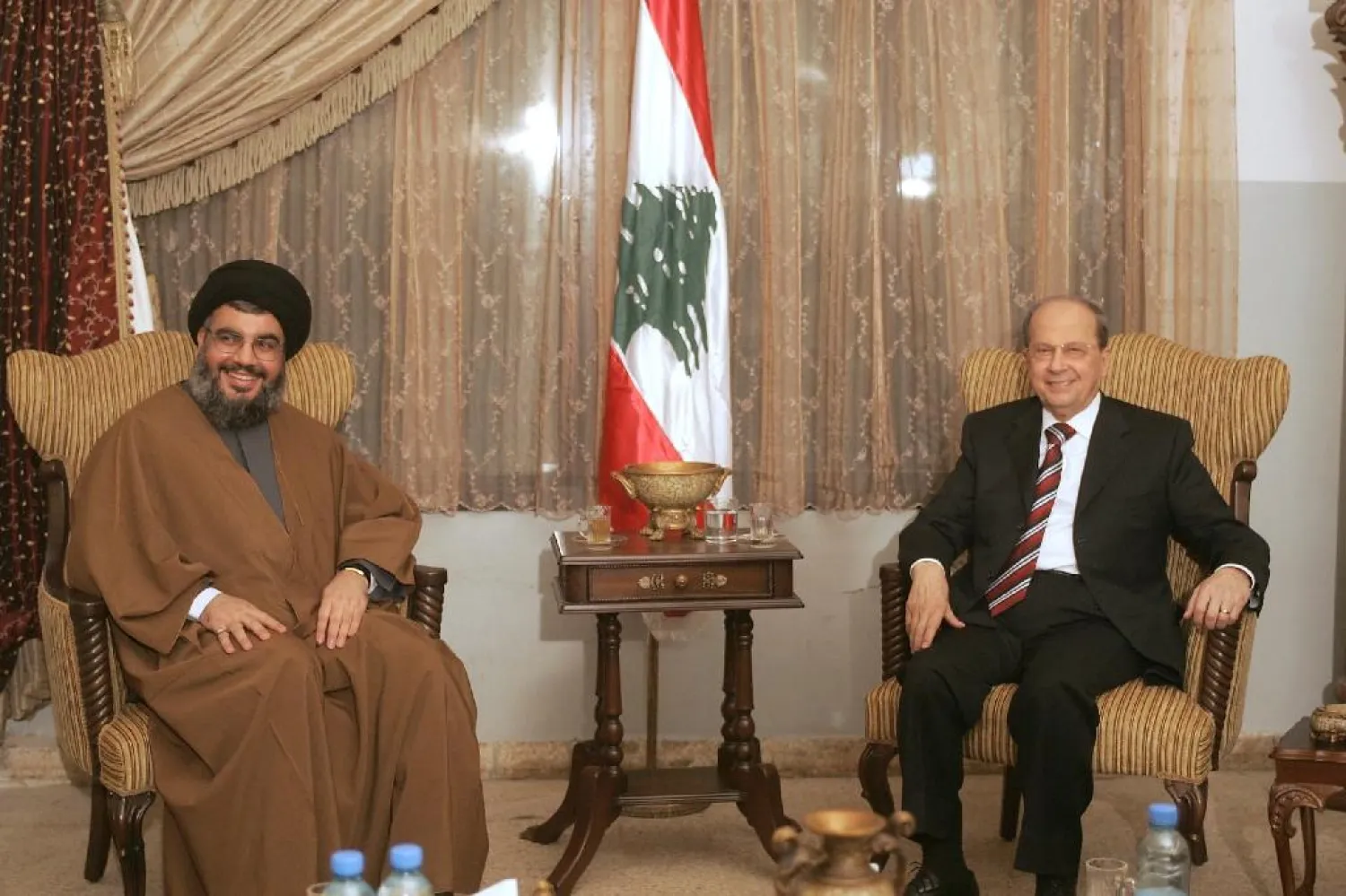The Mar Mkhayel understanding, which was reached between now President Michel Aoun and Hezbollah Secretary General Hassan Nasrallah in February 2006, is losing its impetus as a result of a dispute between head of the Free Patriotic Movement, former foreign Minister Gebran Bassil, and the party’s leadership.
The circumstances that made the two sides reach this understanding, following the assassination of former Prime Minister Rafik Hariri, have started to change. Each group now has its own popular orientations that are no longer in line with the political purpose of the understanding.
FPM MP Ziad Aswad made the dispute public, when he announced, during a television interview on Thursday, that it was impossible to combine “the gun and hunger,” in a clean reference to Hezbollah’s arms.
During a long interview on the FPM-owned OTV channel, his colleague in the FPM, Naji Hayek, promoted the need to support political federalism.
According to observers, the dispute between the two sides reflected diverging views that are no longer in harmony with the Aoun-Nasrallah understanding.
They affirmed that the transformation is a result of success political developments, specifically between Hezbollah and Bassil, “the legitimate heir of Aoun”, who has begun to “prepare for the presidency battle.”
This is why Bassil, who is also Aoun’s son-inlaw, is working away from the spotlight to normalize his relations with the United States. He has made clear steps in this regard, by reportedly securing the travel of former collaborator with Israel, Amer Fakhoury, to Washington. The move sparked Hezbollah’s outrage.
Moreover, Bassil decided to strike a truce with Central Bank Governor Riad Salameh. After waging a campaign for his removal, he is now soliciting offers to normalize his relationship with the Future Movement, because he needs to restore his position as a candidate for the presidency.
On the other hand, Hezbollah is currently watching the accruing flaws in the relations with the FPM.
Observers noted that Aswad’s remarks would not go unnoticed because they directly target the party and were welcomed by forces in the opposition. Aswad perhaps wanted to send a message towards the international powers that oppose Hezbollah and Iran.









